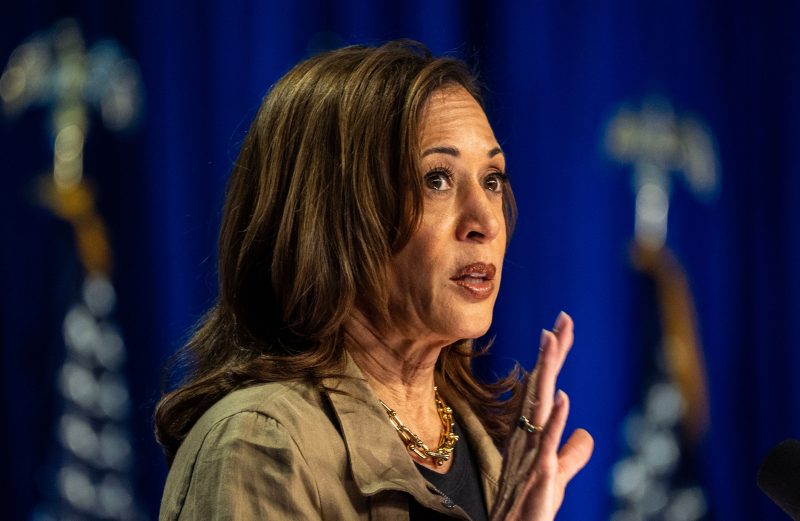In the realm of politics and governance, economic policies and border security have always been significant points of divergence among different administrations. In the United States, the ongoing debate between the economic stances of Vice President Kamala Harris and former President Donald Trump has once again brought these issues to the forefront.
Harris, being a representative of the Democratic Party, advocates for a more progressive economic approach, emphasizing issues such as income inequality, healthcare access, climate change, and social justice. On the other hand, Trump, a Republican, is known for his business-oriented mindset, prioritizing deregulation, tax cuts, and trade agreements that he believes will bolster the economy.
The contrast between the economic strategies of Harris and Trump becomes even more pronounced when it comes to the topic of border security. Harris, aligning with the current administration’s stance, emphasizes a more humanitarian approach to immigration, focusing on addressing root causes in countries of origin, providing pathways to citizenship, and strengthening border enforcement without compromising human rights. Trump, during his presidency, took a more hardline stance on immigration, advocating for stricter border control measures, increased deportations, and the construction of a border wall to curb illegal immigration.
The disparity in economic policy orientations between Harris and Trump raises the question of whether such differences will have a tangible impact on the American public. While both leaders come from opposing ends of the political spectrum, their policies have the potential to significantly shape the economic landscape and border security situation of the country.
Harris’s emphasis on social welfare programs, climate initiatives, and healthcare reform could lead to increased government intervention in the economy, potentially impacting businesses and individual taxpayers. Conversely, Trump’s deregulatory and pro-business approach might result in economic growth and job creation but could also exacerbate income inequality and environmental concerns.
Regarding border security, Harris’s more nuanced approach may lead to a shift in the country’s immigration policies, potentially affecting the lives of millions of immigrants living in the U.S. and seeking refuge. Alternatively, Trump’s stricter enforcement tactics could result in heightened tensions and issues related to human rights violations and international relations.
Ultimately, the clash between Harris and Trump on economic and border security issues underscores the broader ideological divisions within American politics. While each leader brings a unique perspective to the table, the real test lies in their ability to navigate these differences and find common ground for the betterment of the nation. As the debate continues to unfold, it remains to be seen how these contrasting visions will shape the future of the economy and border security in the United States.


























